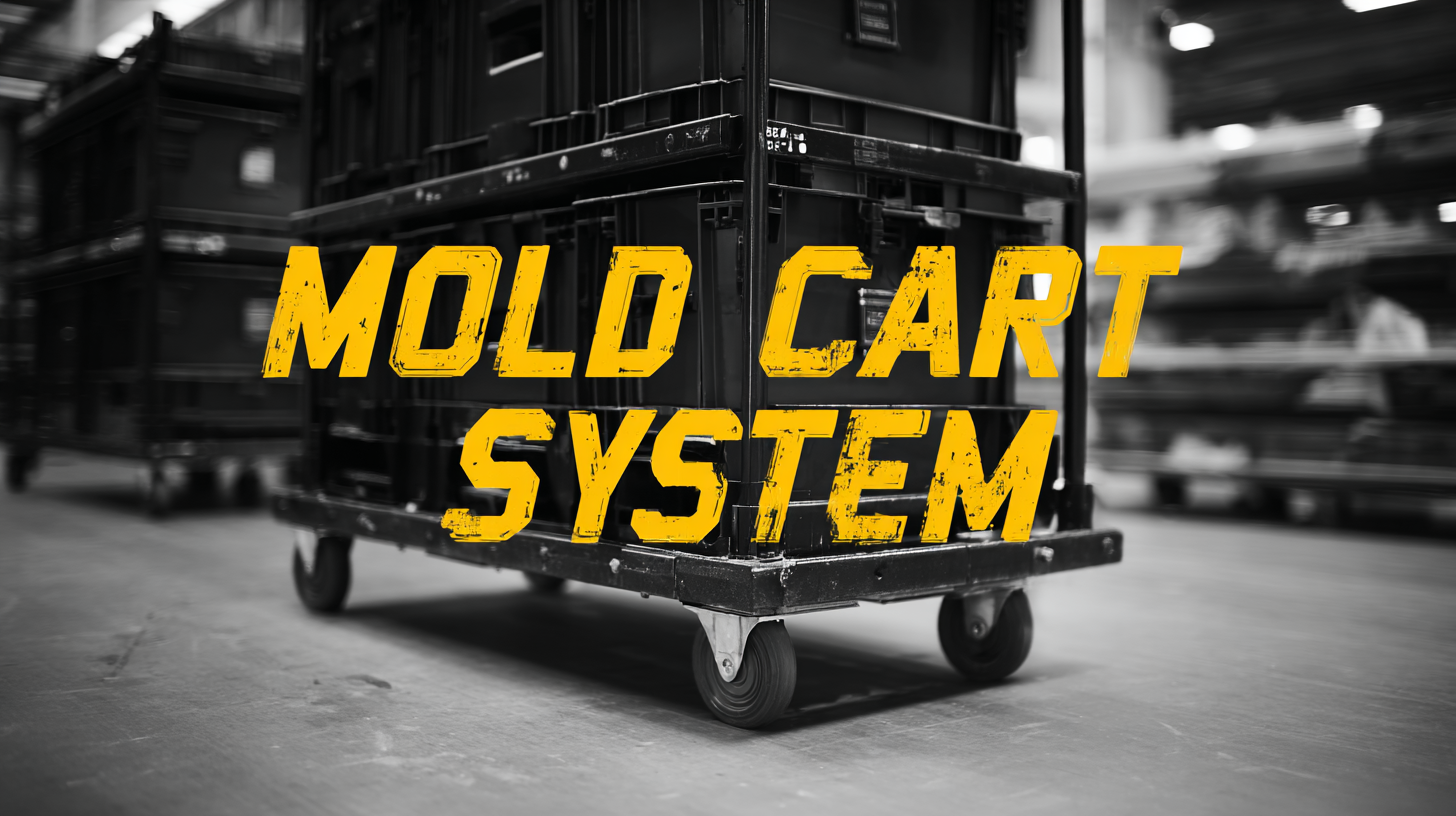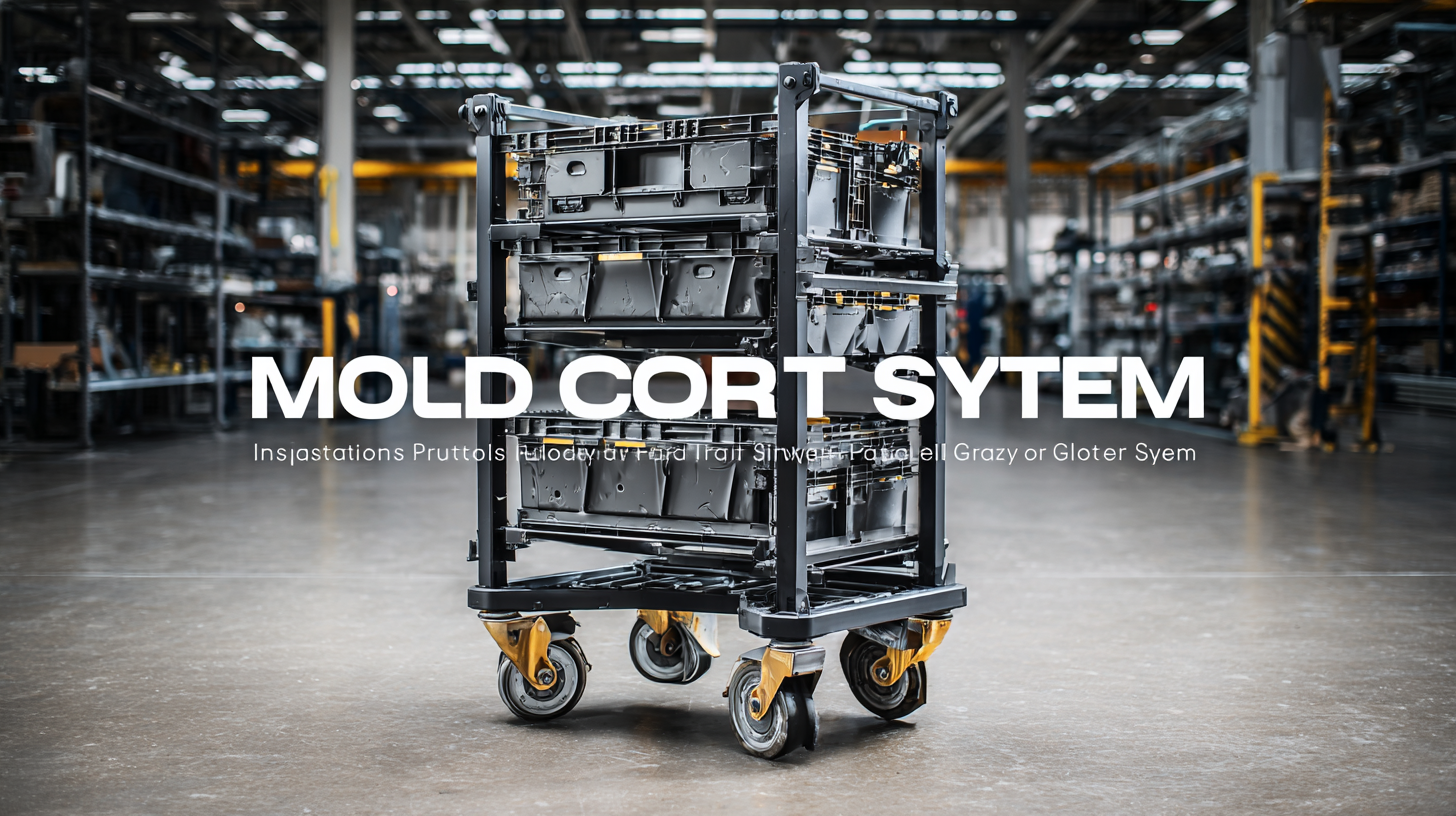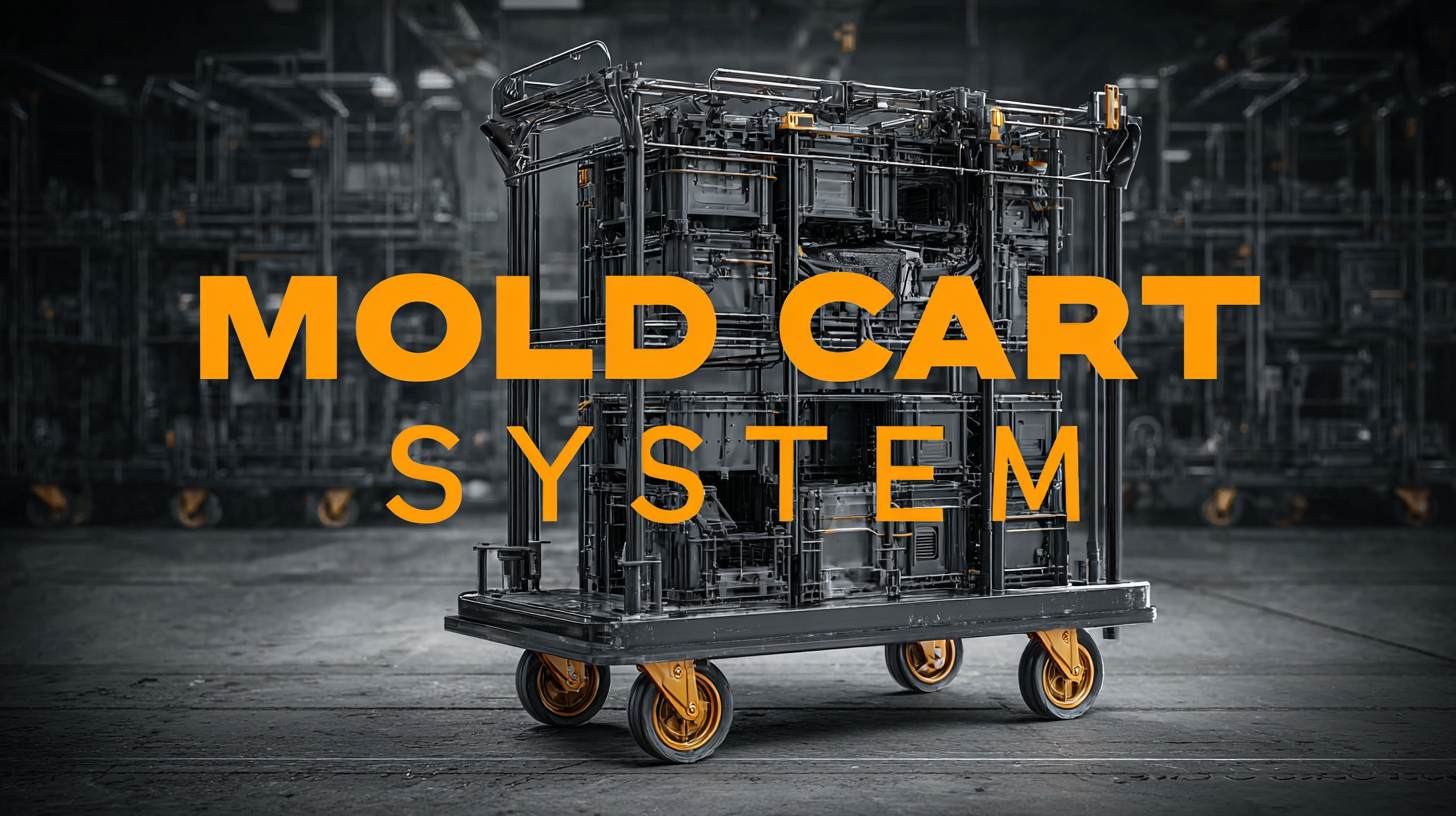Exploring Innovative Industry Applications of the Best Mold Cart System for Global Buyers
In today's rapidly evolving industrial landscape, the demand for efficient and innovative solutions is paramount, particularly when it comes to material handling and manufacturing processes. The Mold Cart System has emerged as a game-changing tool, offering a seamless way to optimize workflow while ensuring precision and safety. This blog will delve into the innovative applications of the Mold Cart System across various industries, from automotive to aerospace, illustrating how global buyers can leverage these advanced systems to enhance productivity and meet rigorous industry standards. As we explore the digital transformation taking place in these sectors, we will uncover the multitude of reasons why investing in a cutting-edge Mold Cart System is not just a trend but a necessity for progressive businesses looking to thrive in a competitive marketplace.

Innovative Use Cases of Mold Cart Systems in Manufacturing Sectors
The utilization of mold cart systems in various manufacturing sectors is transforming production processes, driven by the need for efficiency and automation. In particular, the lithium battery electrode cutting mold market is experiencing substantial growth, projected to expand at a compound annual growth rate (CAGR) of 11.28% by 2032, fueled by rising global demand for lithium-ion technologies. This dramatic increase underscores the importance of innovative mold cart systems that can streamline operations and ensure high-quality outputs.
Automation is becoming increasingly crucial in industries such as cannabis, where businesses are leveraging mold cart systems to enhance quality control and compliance. By integrating advanced mold carts into their workflows, manufacturers can effectively reduce operational costs while maintaining consistency at scale. These innovations not only improve production speed but also ensure that the manufacturing process meets regulatory standards, a crucial aspect in sectors like cannabis.
Tips for maximizing the effectiveness of mold cart systems include regularly assessing the layout of your production floor to optimize cart placement and flow. Implementing predictive maintenance can also significantly extend the lifespan of your equipment, ensuring reliability and minimizing downtimes. Lastly, training your workforce on best practices for utilizing these systems can lead to improved efficiency and productivity.
Exploring Innovative Industry Applications of the Best Mold Cart System for Global Buyers
| Industry | Application | Benefits | Innovative Features |
|---|---|---|---|
| Automotive | Transporting Injection Molds | Increased Efficiency, Reduced Downtime | Ergonomic Design, Adjustable Heights |
| Aerospace | Storage of Composite Molds | Enhanced Safety, Optimized Space Usage | Modular Construction, Locking Mechanisms |
| Consumer Electronics | Handling Precision Molds | Improved Quality Control, Faster Turnaround | Integrated RFID Tracking, Customizable Racks |
| Medical Devices | Transporting Sterile Molds | Maintained Sanitization, Increased Compliance | Antimicrobial Materials, Climate Control Features |
| Manufacturing | Storage and Transport of Standard Molds | Cost Efficiency, Space Optimization | Heavy-Duty Wheels, Stackable Options |
Identifying Common Challenges Faced by Industries Using Mold Carts
In today's fast-paced manufacturing environment, mold carts have emerged as essential tools for optimizing workflows and managing heavy molds efficiently. However, many industries face common challenges when integrating these systems into their operations. One significant hurdle is the variation in mold sizes and weights, which necessitates a versatile cart design that can accommodate different molds without compromising safety or efficiency. This variability often leads to increased costs and inefficiencies, as companies may need multiple cart types to meet their diverse requirements.
Another challenge is the maintenance and management of mold carts. Regular maintenance is crucial to ensure the longevity and reliability of the systems, but many industries struggle with scheduled upkeep amidst the demands of production. Additionally, staff training on proper handling and operation of mold carts can be inconsistent, leading to misuse or accidents that further complicate production processes. As global buyers seek solutions that address these issues, innovative designs and smart technologies are being developed to streamline operations while enhancing safety and productivity.
Evaluating the Impact of Mold Cart Systems on Productivity and Efficiency
The impact of mold cart systems on productivity and efficiency is undeniable in today’s fast-paced manufacturing landscape. These innovative solutions streamline material handling processes, significantly reducing the time workers spend transporting molds and other heavy components. By implementing a well-designed mold cart system, manufacturers can minimize downtime associated with mold changes and maintenance, ultimately enhancing workflow and operational efficiency.

Moreover, mold cart systems are designed with ergonomic principles in mind, which not only improves safety but also boosts employee morale. By reducing physical strain and the risk of injury during the transportation of heavy items, these systems allow workers to focus more on their core tasks. Additionally, the ability to organize and store molds effectively ensures that these critical assets are readily accessible whenever needed, further improving production uptime and overall output quality.
Investing in high-quality mold cart systems can lead to a significant return on investment, as companies experience enhanced productivity, reduced labor costs, and improved operational efficiencies. As global buyers look for ways to optimize their production lines, the adoption of mold cart systems emerges as a vital strategy for staying competitive in the industry.
Comparative Analysis: Traditional vs. Modern Mold Cart Solutions
When assessing mold cart solutions, a comparative analysis between traditional and modern designs reveals significant advancements in efficiency and usability. Traditional mold carts typically focus on basic functionality, often leading to inefficient transport and storage of molds. These older models are typically heavier, making maneuvering difficult and potentially causing workplace accidents. By contrast, modern mold cart systems are designed with ergonomics in mind, offering lightweight materials, enhanced mobility features, and a modular design that allows for better space utilization in manufacturing environments.

Tip 1: When choosing a mold cart, consider the weight it can handle. Opt for carts that use advanced materials like aluminum to ensure durability without the added bulk.
Modern mold carts are also equipped with innovative features such as adjustable shelving, built-in safety locks, and integrated wheels designed for smoother navigation. These technological upgrades not only streamline processes but also help maintain mold integrity during transportation. Furthermore, modern systems often incorporate smart technology, such as RFID tracking, to monitor mold inventory and usage efficiently.
Tip 2: Incorporate technology into your mold cart system. Tools like RFID tags can greatly enhance inventory management by allowing real-time tracking of molds and reducing the chances of loss or misplacement.
Future Trends in Mold Cart Technology and Industry Adaptation
As the manufacturing sector continues to evolve, mold cart technology is witnessing significant advancements aimed at enhancing efficiency and versatility. Future trends indicate a strong shift towards automation and smart technology integration in mold cart systems. The incorporation of IoT devices allows for real-time monitoring and data collection, enabling manufacturers to optimize processes and reduce downtime. With predictive maintenance capabilities, molds can be maintained before failures occur, ensuring uninterrupted production cycles.
Moreover, eco-friendly initiatives are shaping the development of mold carts. Manufacturers are increasingly adopting sustainable materials and energy-efficient designs to minimize their environmental footprint. This trend not only caters to the growing demand for greener solutions but also enhances the corporate responsibility image of companies in the eyes of global buyers. As businesses adapt to these changes, the focus will likely shift towards more customizable systems that cater to specific industry needs, facilitating better productivity and innovation within the marketplace.
 English
English Español
Español Português
Português русский
русский Français
Français 日本語
日本語 Deutsch
Deutsch tiếng Việt
tiếng Việt Italiano
Italiano Nederlands
Nederlands ภาษาไทย
ภาษาไทย Polski
Polski 한국어
한국어 Svenska
Svenska magyar
magyar Malay
Malay বাংলা ভাষার
বাংলা ভাষার Dansk
Dansk Suomi
Suomi हिन्दी
हिन्दी
